Blog Posts Tagged AC/DC Module
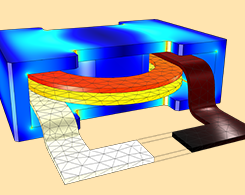
Evaluate Your 3D Inductor Design with COMSOL Multiphysics
Inductive devices exhibit a range of electromagnetic effects that need to be taken into account for any use case. Here, we demonstrate how to model and design an inductor in COMSOL Multiphysics®.

Analyzing a Component of the ITER Tokamak with Simulation
Researchers investigated whether the tritium breeding modules (TBMs) in the ITER tokamak produce magnetic perturbation that could generate unacceptable plasma losses. Get details here.

How to Create Outstanding Sound Performance in Vehicles
Just because you’re in a car, doesn’t mean the sound quality should be subpar. A guest blogger demonstrates how to use acoustics simulation to optimize sound performance in vehicles.
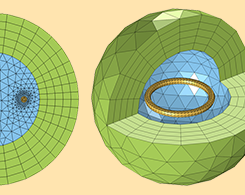
How to Choose Between Boundary Conditions for Coil Modeling
3 approaches for truncating a domain when modeling an EM coil in free space: the Magnetic Insulation and Perfect Magnetic Conductor boundary conditions as well as the infinite element domain.

Accessing External Material Models for Magnetic Simulations
Get a demonstration of how access external material models for EM simulations with a hysteresis example. Plus, get an overview of the available functionality for modeling ferromagnetic materials.
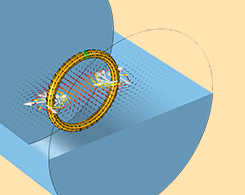
Modeling Coils in the AC/DC Module
A key concept when it comes to coil modeling is closing the current loop. Learn how to do so when modeling coils using the AC/DC Module and COMSOL Multiphysics®.
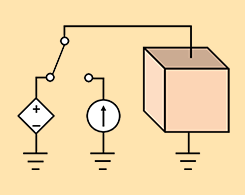
Control Current and Voltage Sources with the AC/DC Module
Did you know that you can use the Terminal boundary condition to dynamically switch between excitation types during a transient simulation? This is useful for modeling power supply, for example.
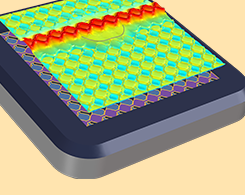
Streamlining Capacitive Touchscreen Design with Apps
In this comprehensive blog post, we discuss the different design considerations for capacitive touchscreens and how simulation apps can be used to streamline their design workflow.
